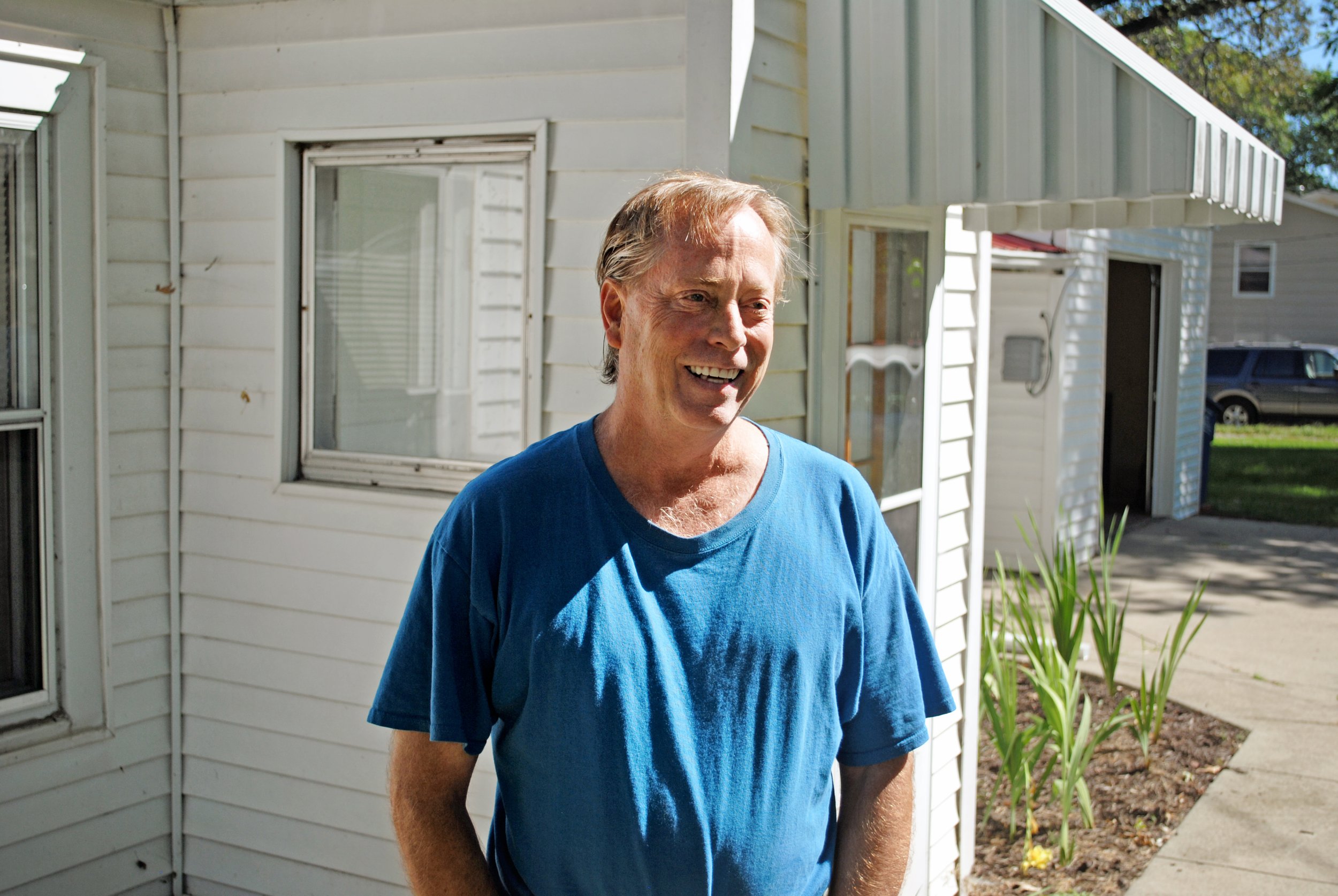Programs
Programs Overview
We often take for granted what stable housing can provide. It's not just a place to call home or a roof over a family's head. Stable housing changes lives, alleviates poverty, and offers a firm foundation so individuals and families can gain stability and live happy, healthy lives. Without stable housing, individuals and families become transient - moving frequently from place to place. This transience can lead to absenteeism and high transfer rates for students in school. Without stable housing, it is difficult for individuals to access the physical and mental health care they need. Instead, individuals experiencing homelessness rely on crisis services like emergency departments and county jails. Once housed, our participants are more likely to see their primary care doctor regularly and take preventative health measures that are otherwise impossible without stable housing.
When you are experiencing homelessness, you're focused on survival - getting through the day or meeting your basic needs. Securing safe, stable, and affordable housing gives individuals and families the foundation to work toward their goals and become active members of the community.
Anawim Housing program managers connect participants with resources that will help them meet their goals. For some, this means accessing health care, substance abuse treatment, or job development. For others, it means re-connecting with family, applying for Social Security benefits, or volunteering in the community. We build trusting relationships with our clients, we partner with them on their road to a happy, healthy life. Anawim Housing program clients pay no more than 30% of their income toward rent and utilities. This means that they have more to spend on food, healthcare, and other basic necessities. Poverty is deeply connected to housing. When we provide stable, supportive housing, we provide individuals and families with the chance to live a better life.
Requirements
To qualify for participation in one of Anawim Housing's Permanent Supportive Housing programs, individuals and families must meet specific eligibility criteria. This includes experiencing literal homelessness and having at least one documented disability within the household. Such disabling conditions encompass a range of conditions, such as a substance use disorder, serious mental illness, developmental disability, or a chronic physical health condition.
For those seeking entry into our program and currently experiencing homelessness in Polk County, Centralized Intake at Primary Health Care serves as the initial point of contact.
To begin the process, individuals or families are encouraged to visit Centralized Intake at Primary Health Care.
Through Centralized Intake, individuals will have the opportunity to meet with an intake case manager who will conduct a comprehensive assessment and connect them with the appropriate programs and services tailored to their eligibility and specific needs.
1200 University Avenue, Des Moines, IA 50314
Phone: (515) 248-1850 | After Hours: Dial 2-1-1
Hours: Monday - Friday | 8:00 AM - 5:00 PM
Services
As part of helping serve those who live in our Permanent Supportive Housing, Anawim Housing provides Supportive Services that encompass:
Resource/Referral: Each tenant is offered the opportunity to collaborate with our Supportive Services Manager. Through this collaboration, tenants are offered support, advocacy and resources to assist in goal realization.
Housewarming Program: Each individual or family that moves in is given a "Welcome Home" basket filled with cleaning supplies and other items to help new tenants feel welcomed in their new home.
Neighborhood/Community Opportunities and Events: These opportunities are ongoing and include informational meetings about homeownership, community resources, neighborhood gatherings, and other community events.
Educational Programming: Educational classes are planned throughout the year on a variety of topics such as Neighborhood Safety, Maintenance Tips/Tricks, Cost Savings Advice, Budgeting, etc.
Learning Opportunity
Anawim Housing is passionate about affordable housing and working together to end homelessness. We have skilled staff who are able to come to your place of worship, neighborhood association, or community group to offer presentations, sermons, and educational opportunities.
Presentations & Speaking
We have skilled staff who are able to come to your neighborhood association, community group, business, or place of worship to offer presentations, educational opportunities, and sermons. Our areas of expertise include Housing First, harm reduction, property development, homelessness, affordable housing, and more. Our staff holds the following certifications: Offender Workforce Development Specialist, International Alcohol and Drug Counselor, SSI/SSDI Outreach, Access and Recover (SOAR), and Certified Prevention Specialist.
For more information or to schedule us for a future presentation, teaching or training opportunity, please contact Director of Programs and Services, Jeremy Orcutt.
Contact Our Team
If you are interested in learning more about Anawim Housing’s programs and services, please reach out to our Programs team today.





